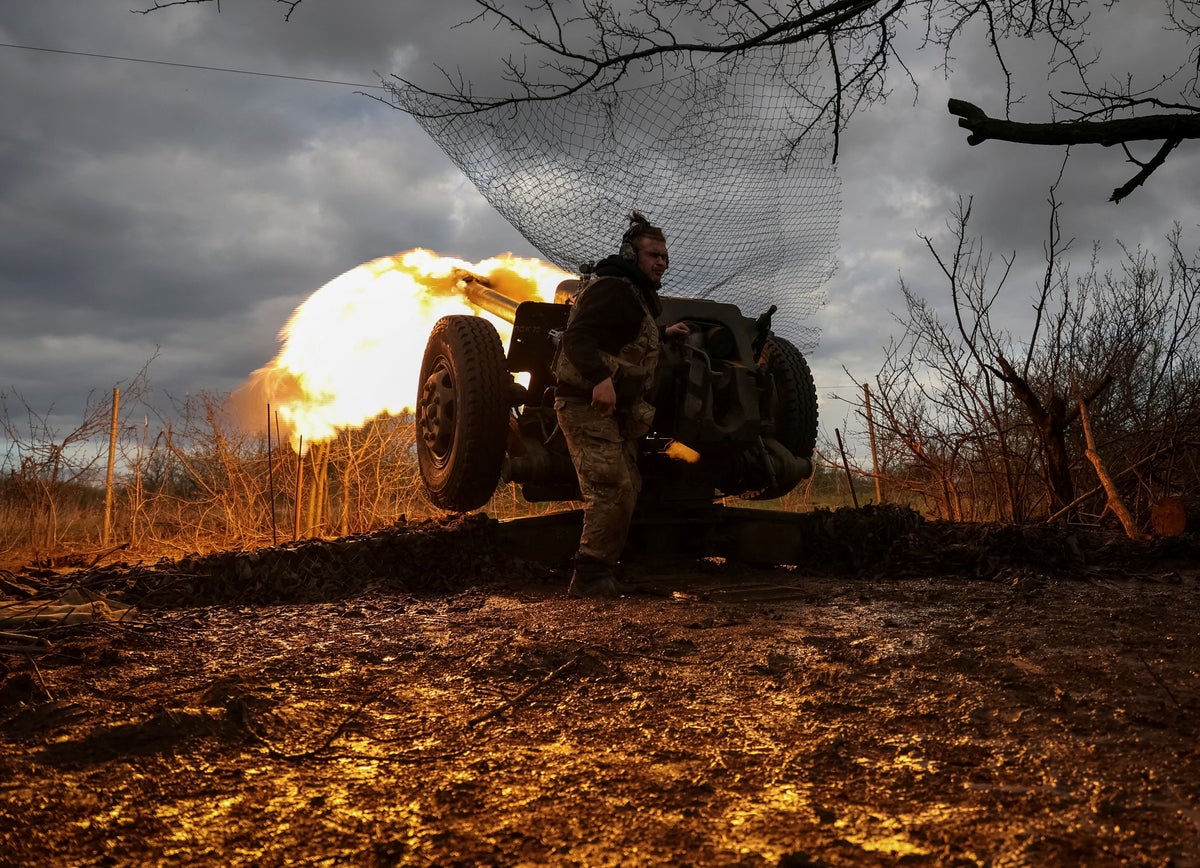
Ukraine’s interior minister has said that eight “storm” brigades – comprising of up to 40,000 troops – are being re-equipped as Ukraine prepares to launch a counteroffensive against Moscow’s invasion.
The brigades are “fully formed” but Ihor Klymenko said that they require two to three weeks of instruction before they are tasked with “appropriate offensive assault operations” alongside the Ukrainian army. Mr Klymenko said that Kyiv was also planning the “formation of additional units” in parallel with this training, during an interview with Interfax-Ukraine.
At the same time, Russia’s defence minister has ordered the production of missiles in the country to be doubled “as soon as possible” and its weapons supply rapidly increased. Western and Ukrainian officials have been suggesting for months that shortages of artillery munitions and missiles are undermining Russia’s war, which is now more than 14 months old.
“The actions of Russian units conducting the special operation largely depend on the timely replenishment of stocks of weapons, military equipment and means of destruction,” Sergei Shoigu said in remarks published by the Defence Ministry and broadcast on state television. He added that Russia’s defence enterprises had been told to increase the “pace and volume of production”. In particular, Mr Shoigu said the output of high-precision missiles needed to be doubled “as soon as possible”.
It comes as Ukraine’s military vowed not to give up on the eastern city of Bakhmut, the scene of some of the bloodiest fighting in the last few months. The battle for Bakhmut has symbolic importance for both sides, with Ukraine still holding on to some parts of the city after months of fierce fighting against regular Russian troops and fighters from the private Wagner mercenary force. Russia sees the city as a stepping stone to other areas of the region of Donetsk that it seeks to control. However, the frontlines have barely moved in weeks.
In remarks released after a visit to troops fighting in Bakhmut, General Oleksandr Syrskyi, commander of Ukrainian ground forces said: “Together with the commanders, we have made a number of necessary decisions aimed at ensuring the effective defence and inflicting maximum losses on the enemy”
He told soldiers in video footage of his visit: “We will continue, despite all the forecasts and advice, to hold Bakhmut, destroying Wagner and other most combat-capable units of the Russian army ... we give our reserves an opportunity to prepare and we are preparing for further actions ourselves.”
Mr Syrskyi said on Monday that Ukrainian units had ousted Russian forces from some positions in Bakhmut. The Wagner group said its units had made incremental advances there. Reuters was unable to verify the battlefield situation.
Yevgeny Prigozhin, the founder of the Wagner group, said on the same day that his troops were being supplied with only a third of the artillery shells they needed for their assault on the eastern Ukrainian city of Bakhmut. Mr Prigozhin has for months railed against a lack of ammunition supplies from Moscow, saying poor support is holding back Russia’s offensive.
On Monday, the US estimated that more than 20,000 Russians had been killed in the last five months of fighting, with another 80,000 injured. White House national security spokesperson John Kirby said the estimates were based on US intelligence and said that half of those killed were from the Wagner group, mostly around Bakhmut. The Kremlin dismissed the estimate on Tuesday, saying that been “plucked from thin air” and said that Washington had no way of obtaining the correct data.
Elsewhere, Denmark has said it will donate military equipment and financial support to Ukraine worth 1.7 billion Danish crowns (£200m) – including mine clearance vehicles, munition, field bridges and money for air defence that will be needed for a counteroffensive against Russian forces that are dug in behind hundreds of miles of trenches.
“We know that the Russians have entrenched themselves in the occupied territories of Ukraine with trenches, minefields and other obstacles to stop a Ukrainian offensive,” the acting Danish defence minister, Troels Lund Poulsen, said. “The material in the donation package is important to pave the way for Ukrainian tanks and the armoured infantry in the frontline,” he added.
The defence minister added that Denmark would reduce its military presence in Iraq starting in early-2024 and instead focus on the Baltic countries, offering Nato a battalion to defend the region. The battalion is expected to consist of between 700 and 1,200 soldiers, and is set to be deployed in Latvia between four and six months every year. The rest of the year, the troops will remain in Denmark, ready to be deployed to the Baltic states in case of a crisis, their Ministry of Defence said.
Denmark will withdraw one of its security and escort units of about 105 soldiers in Iraq as of February next year, but will continue to provide staff and advice to Nato’s mission in Iraq.
Reuters and Associated Press contributed to this report







